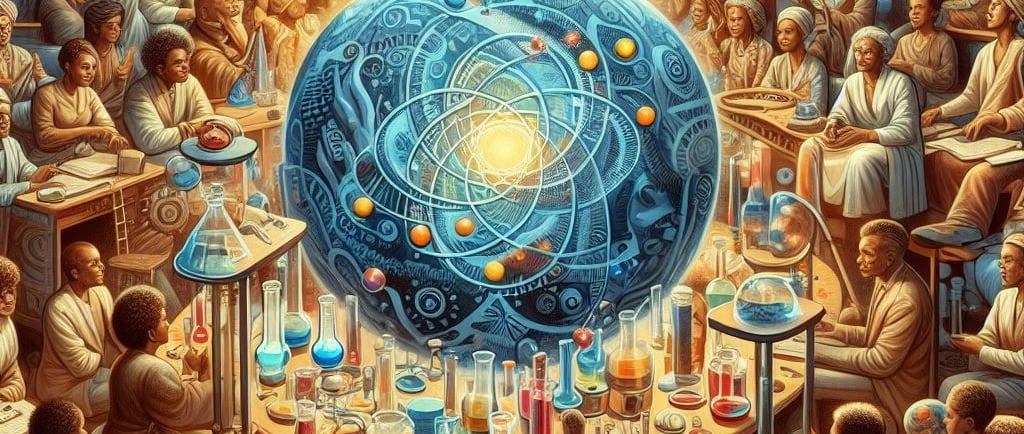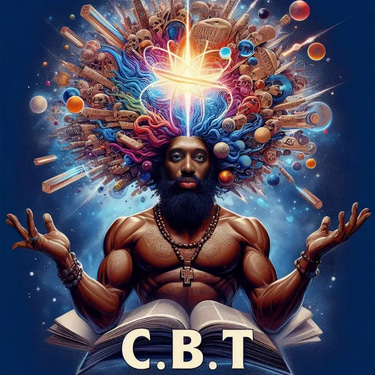Unveiling the Truth: How Modern Science Validates Oral Traditions and Unravels the Mysteries of Oral Histories
Unlock the secrets of our past by exploring the rich tapestry of oral traditions and histories in my latest blog. These living narratives, passed down through generations, represent the resilience and ingenuity of our ancestors. In a world dominated by written records and digital archives, it’s easy to overlook the profound significance of oral stories. Yet, they are vital, breathing testaments to the enduring power of the human spirit and our deep-rooted cultural connections. Join me in embracing the convergence of modern science with these ancient narratives to gain insights into human experience and build a more empathetic, interconnected future. Discover how the fusion of oral traditions and contemporary research can inform and inspire us. Subscribe to stay updated on the latest in this fascinating field!
ANCIENT DNA
James Cassel
6/11/20246 min read


Introduction to oral traditions and oral histories
As a passionate researcher and writer, I've always been fascinated by the rich tapestry of human history and the countless stories that have been passed down through generations. Oral traditions and oral histories hold a special place in my heart, for they represent the living, breathing embodiment of our cultural heritage – a testament to the resilience and ingenuity of our ancestors.
In a world increasingly dominated by written records and digital archives, it's easy to overlook the profound significance of these oral narratives. But make no mistake, they are far from mere relics of the past. Rather, they are living, breathing testaments to the enduring power of the human spirit, and the deep-rooted connections that bind us together as a global community.
The significance of oral traditions in preserving cultural heritage
Oral traditions have long been the cornerstone of cultural preservation, serving as a vital link between the past and the present. Through the power of storytelling, our ancestors have passed down invaluable knowledge, customs, and beliefs, ensuring that the rich tapestry of human experience is not lost to the ravages of time.
These oral histories are not mere fables or legends, but rather, they represent a profound and intimate understanding of the world around us. They are the repositories of ancient wisdom, a wellspring of insights that can shed light on the very foundations of our existence. From the creation myths of indigenous peoples to the epic sagas of ancient civilizations, these stories have the power to transport us to other realms, to connect us with the universal human experience.
Challenges in validating oral traditions through modern science
Yet, despite their enduring significance, oral traditions have often been viewed with skepticism by the scientific establishment. The very nature of these narratives – their fluidity, their reliance on memory and oral transmission – has made them difficult to validate using the rigid methodologies of modern academia.
For centuries, scholars have grappled with the challenge of reconciling the rich, nuanced world of oral histories with the often reductive and quantitative approach of scientific inquiry. How do we bridge the gap between the subjective, experiential nature of these narratives and the objective, empirical standards of the scientific method?
Recent scientific advancements in the field of oral history research
Fortunately, the tide is turning. In recent decades, we have witnessed a remarkable shift in the way that modern science approaches the study of oral traditions and oral histories. Driven by a growing recognition of the inherent value and validity of these narratives, researchers across a wide range of disciplines have begun to develop innovative methodologies and tools to unlock the secrets of the past.
From the fields of linguistics and anthropology to the realms of archaeology and genetics, a new generation of scholars is employing cutting-edge technologies and interdisciplinary approaches to unravel the mysteries of oral histories. By leveraging the power of modern science, they are not only validating the authenticity of these narratives but also uncovering a wealth of insights that have the potential to transform our understanding of human history.
The use of linguistics and language analysis in validating oral traditions
One of the most exciting frontiers in the study of oral histories is the field of linguistics and language analysis. By examining the nuances of language, the patterns of speech, and the evolution of dialects, researchers are gaining unprecedented insights into the origins and migrations of ancient peoples.
Through the careful analysis of linguistic data, scholars are able to trace the footprints of our ancestors, uncovering the intricate web of cultural exchange and the cross-pollination of ideas that have shaped the human story. By comparing the linguistic features of oral traditions with the archaeological and genetic evidence, they are able to validate the authenticity of these narratives and uncover the deeper truths that lie beneath the surface.
Anthropological approaches to studying and validating oral histories
Alongside the linguistic analysis, the field of anthropology has emerged as a powerful tool in the validation of oral histories. By immersing themselves in the lived experiences of indigenous communities, anthropologists are able to gain a deeper understanding of the cultural contexts and worldviews that underpin these narratives.
Through ethnographic research, participant observation, and the careful documentation of cultural practices, anthropologists are able to contextualize the oral traditions within the broader tapestry of human civilization. They can identify the underlying patterns and themes that connect these narratives to the larger arc of human history, and use this knowledge to validate the authenticity and significance of these stories.
Archaeological evidence supporting oral traditions
But the validation of oral histories goes far beyond the realms of linguistics and anthropology. In recent years, we have witnessed a remarkable convergence between the insights gleaned from these narratives and the tangible evidence uncovered by archaeologists.
Time and again, archaeologists have unearthed physical artifacts, architectural structures, and other material remains that align seamlessly with the stories passed down through generations. From the discovery of ancient trade routes to the identification of long-lost settlements, these archaeological findings have served to validate and enrich our understanding of the oral histories that have been entrusted to us.
Genetic and DNA research in validating oral histories
And the validation of oral histories extends even further, into the realms of genetic and DNA research. By analyzing the genetic markers and DNA profiles of indigenous populations, scientists are able to trace the migratory patterns and ancestral lineages that are reflected in the oral traditions of these communities.
Through the use of cutting-edge genetic analysis and advanced bioinformatics, researchers are able to corroborate the accounts of population movements, cultural exchanges, and intermarriages that are woven into the fabric of these oral narratives. In doing so, they are not only validating the authenticity of these stories but also uncovering a wealth of insights into the complex tapestry of human evolution.
Case study showcasing the convergence of oral traditions and scientific evidence
The power of this convergence between oral traditions and modern scientific evidence is perhaps best illustrated through a series of compelling case studies. One such example is the ongoing research into the oral histories of the indigenous peoples of the Arctic, such as the Inuit and the Yupik.
For centuries, these communities have passed down detailed accounts of their migrations, their interactions with the natural world, and their deep spiritual connections to the land. And as researchers have delved deeper into these narratives, they have uncovered a remarkable alignment with the findings of archaeological, linguistic, and genetic studies.
Similarly, the oral traditions of the Aboriginal peoples of Australia have been the subject of intense scientific scrutiny in recent years. Through the integration of ethnographic data, linguistic analysis, and archaeological evidence, researchers have been able to validate the authenticity of these narratives, while also uncovering a wealth of insights into the complex history of human settlement in the region.
The future of oral history research and its implications for understanding human history
As we look to the future, it is clear that the study of oral traditions and oral histories will continue to play a pivotal role in our understanding of the human story. With the rapid advancements in scientific research and the growing recognition of the inherent value of these narratives, we are poised to unlock a trove of insights that have the potential to transform our very conception of human history.
By bridging the gap between the subjective, experiential nature of oral traditions and the objective, empirical standards of modern science, we can uncover a deeper, more nuanced understanding of the human experience. We can gain insights into the cultural exchanges, the migratory patterns, and the spiritual beliefs that have shaped the course of human civilization, and use this knowledge to build a more inclusive, equitable, and sustainable future.
Conclusion: The power of oral traditions and the role of modern science in validating them
In conclusion, the study of oral traditions and oral histories is not merely an academic pursuit, but rather, a vital and ongoing exploration of the very essence of human experience. Through the convergence of modern science and the insights gleaned from these living, breathing narratives, we can unlock the secrets of the past and chart a course towards a more informed, empathetic, and interconnected future.
As we continue to delve into the rich tapestry of human history, let us embrace the power of oral traditions and the role of modern science in validating them. For it is in the convergence of these two realms that we will find the answers to the most pressing questions of our time, and the inspiration to build a world that honors the wisdom and resilience of our ancestors.
Discover the hidden truths of our past by exploring the convergence of oral traditions and modern science. Subscribe to our newsletter to stay informed on the latest advancements in this exciting field of research.
